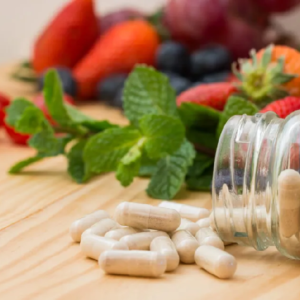How to Lose Weight – Best Eat These Good Fatty Foods

Not all fatty foods are bad for you. In fact, foods with omega-3 fatty acids are good for you. Furthermore, many studies show that eating good fatty foods, in moderation, doesn’t make you fat. Indeed, these foods keep diseases of the heart and cancer at bay. In addition, a 30 year study of 126,200 women and men reported in 2016 that the likelihood of death from all causes fell by eating less carbs and more of the healthy, unsaturated fatty foods. So, here is a list of some of these foods.
Eggs
First of all, a hard-boiled egg has about 5 grams of mostly healthy fats. Also, some eggs have extra omega-3 fatty acids.
In addition, the egg’s high concentration of phospholipids regulates how your body absorbs the egg’s cholesterol. Also, these phospholipids help control inflammation in the body. Next, eggs have proteins which make you feel full longer. Therefore, you eat less. Finally, to keep your eyes healthy, eggs contain zeaxanthin and lutein.
Walnuts
Because they contain omega-3 fatty acid known as alpha-linolenic acid, walnuts are an especially good fatty food. Regrettably, your body can’t produce alpha-linolenic acid.
Above all, alpha-linolenic fatty acid helps prevent heart attacks, reverse blood vessel hardening (also known as atherosclerosis), and lower high blood pressure. Incidentally, an alpha-linolenic fatty acid is also found in flaxseed oil, canola oil, and soybean oil.
However, just because walnuts are healthy doesn’t mean you eat as many as you want. In fact, you have to limit your serving to one ounce – or 14 halves of walnuts a day. Similarly, the serving sizes of other healthy nuts are 18 cashews, 23 almonds, and 19 halves of pecans a day.
Flax, Sesame, Sunflower, and Chia Seeds
Most of all, ground flax, sesame, sunflower, and chia seeds are all high in polyunsaturated fats. In addition, they are filled with omega-3 fatty acids. And these fatty acids help lower your LDL (the bad) cholesterol levels.
In fact, two tablespoons of chia seeds contains seven grams of unsaturated fat. And that amount helps lower your cholesterol, decrease inflammation, as well as lowering your blood pressure. Because chia seeds break apart easily when you digest them, you don’t need to grind them up like flax. Regrettably, the chia seeds are small. As a result, it is easy to eat too many of them. So eat them in moderation.
Avocados
Avocados are a very popular fruit with incredible benefits. For example, a cup of the creamy fruit has 3.1 grams of saturated fats, 2.7 grams of polyunsaturated fats, and 14 grams of monounsaturated fats. Also, one half of a medium sized avocado has about 140 calories.
In addition, avocados provide fiber, protein, and potassium which helps lower your blood pressure. Also, avocados contain lutein. And lutein provides antioxidant protection to minimize eye damage from ultraviolet rays. Next, avocados are also low in sugar. Also, avocados supply vitamins C, E, K, and B-6. Indeed, vitamin K is good for bone health.
Moreover, avocados contain beta-sitosterol which helps maintain healthy cholesterol levels. In addition, avocados contain folate that is important for repairing your cells during pregnancy. Also, the folate protects against colon, cervical, pancreatic and stomach cancers. Furthermore, the folate decreases risk of depression. Finally, the 12 grams of fiber in a single avocado helps prevent constipation and lower risk of colon cancer.
Olive Oil
Olives are used to make olive oil. And, olives contain monounsaturated oleic fatty acid which can reduce risk of heart disease. Also, olives contain large amounts of antioxidants that reduce the risk of getting chronic diseases.
Indeed, extra-virgin olive oil contains antioxidants, such as oleocanthal, that reduces inflammation in the body and has anti-cancer properties. Also, the monounsaturated fats in olive oil helps reduce the risk of heart disease and stroke. Furthermore, olive oil protects bad LDL cholesterol from oxidation and improves lining of your blood vessels.
Most of all, olive oil hasn’t been found to cause weight gain and obesity. Also olive oil, may help fight Alzheimer’s disease and reduce risk of type 2 diabetes. Finally, olive oil has antibacterial properties and protects your from Helicobacter pylori (H-pylori) bacteria causing stomach ulcers.
Fish
Because they are good sources of omega-3 fatty acids, the recommendations from the American Heart Association is to eat fatty fish like albacore tuna, herring, lake trout, mackerel, salmon, and sardines. In fact, these fish help keep your heart healthy and your brain sharp. In addition, the recommendations from the American Heart Association is to eat, every week, two 3 ounce servings of fish.
Indeed, the essential omega-3 fatty acids lowers your blood pressure, reduces the amount of fat in your blood, and keeps you heart healthy. Also, fish have fat-soluble vitamin D that functions as a steroid hormone in the body. In addition, your risk of heart attack and stroke decreases by eating fish. Furthermore, the omega-3 fatty acid’s docosahexaenoic acid accumulates in the developing brain and eyes of a newborn and so is recommended for expecting or nursing mothers.
Next, these fish increases grey matter in the brain and protects it from age-related deterioration. In fact, studies show that eating fish every week results in the brain center that regulates emotion and memory, getting more grey matter.
Also, the omega-3 fatty acids help lessen depression as well as increasing the effectiveness of anti-depressant medications. And they may help mental disorders such as bipolar disorder.
Finally, vitamin D, contained in these fish, functions as a steroid hormone and helps improve quality of your sleep.









